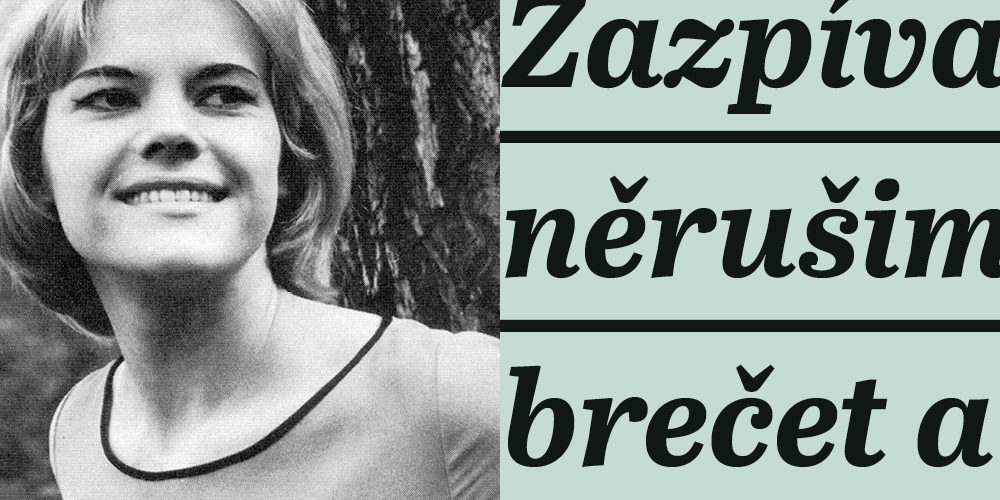
One of the most famous Czech singers, Eva Pilarová lived through the bombing of Brno and its liberation by Soviet troops in May 1945 when she was not even six years old.
At the end of the war, her father and mother hid her with her sister in Morkůvky near Brno. But Morkůvky was in the direction of the advance of General Malinovsky’s Soviet troops, with whom Czechoslovak soldiers fought side by side on the Eastern Front, and some did not speak highly of them.
“My aunt from Morkůvky was ordered to take a Soviet soldier, whom we called Báryšňa, to her apartment. She sang nicely and taught me a Russian song. It was only years later that I found out it was the Russian anthem,” Eva Pilarová recalled. And it was the Soviet anthem that saved her mother:
“My neighbor from Morkůvky was raped by Russian soldiers. They came to the cellar where we were hiding. They took my father’s watch and everything else. And then they went to up my mother. I realized in my childish head that the soldier was speaking the language that Báryšňa had taught me to sing in. I stood in front of him and started: ‘Soyuz nerushimyy…’ The soldier started crying, took me in his arms, walked around the yard with me, and nobody got hurt,” Eva Pilarová said.
Liberation
Nazi Germany was defeated in the Second World War by the determination, bravery, and combat deployment of soldiers from the United States, Great Britain, Poland, France, the Soviet Union, and other countries and nations. But the Soviet Union, led by the dictator Stalin, did not join the Allies until it itself was attacked by the Nazis in June 1941. Until then, the USSR had acted as a partner of Nazi Germany in the spirit of the Molotov-Ribbentrop Pact concluded shortly before the outbreak of the war. At that time, when tens of thousands of Czechoslovaks fled from the Nazis to the USSR, they often ended up in gulag labor camps. The Red Army did not enter the war until the summer of 1941 after Nazi Germany had invaded.
The Soviet Union deployed over six million soldiers to the Eastern Front. We can speak of great heroism and huge losses. The Red Army, with great effort, defeated the better armed and trained German Wehrmacht, and with it the prestige of the “land of the Soviets” logically grew. However, when we talk about the liberation of Czechoslovakia, we must mention, besides the Soviet victims (up to 140,000 Red Army soldiers are said to have died), the tens of thousands of our soldiers fighting alongside the Allies on the Eastern and Western fronts, the brave Slovak insurgents, the paratroopers, partisans and thousands of their helpers, the insurgents from the barricades of Czech towns at the end of the war, and last but not least the soldiers of the American Army who liberated part of the Czechoslovak territory from the west, as well as the forgotten Romanian soldiers advancing with the Soviets from the east. On 8 May 1945, after six long years, peace reigned in Europe and Czechoslovakia became a liberated country. But not free.



